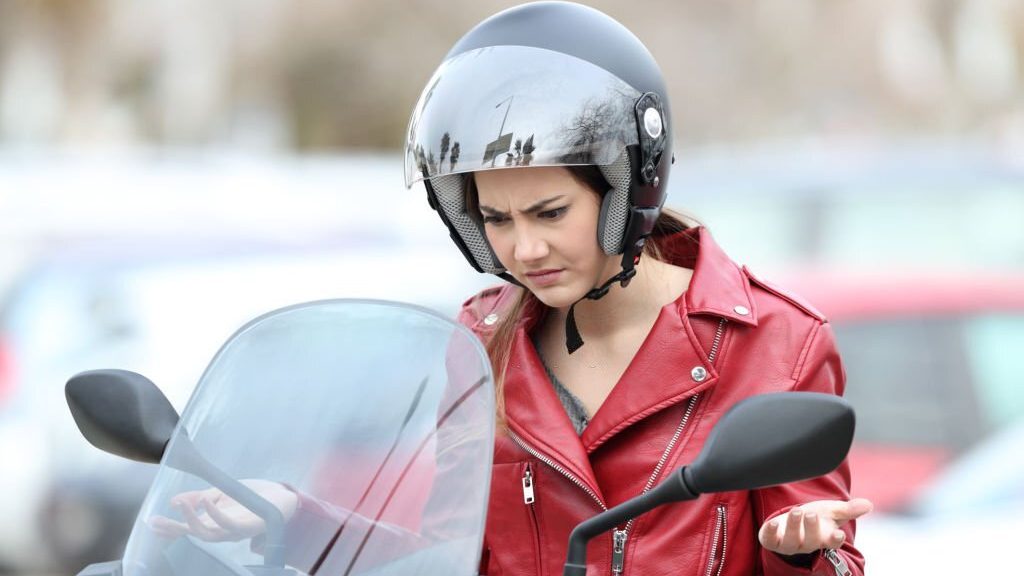Looking to ride your motorcycle in Texas? Before you hit the road, it’s important to understand Texas motorcycle safety laws, particularly the state’s motorcycle helmet laws.
According to the law, riders under 21 must wear a helmet. In contrast, riders over 21 can choose not to wear one if they have completed a motorcycle safety course or have sufficient health insurance coverage.
In 2014, there were 463 Texas motorcycle accident fatalities.
So, what does Texas law require when it comes to helmets? In this article, we will explore the ins and outs of Texas motorcycle helmet laws to help keep you safe on the road.
Texas Motorcycle Helmet Laws
Helmets save lives. a 2013 report says that helmets saved an estimated 1,630 lives in the United States. While the number of motorcyclists killed in crashes increased by 15.22% in 2020.

However, there are some exemptions to the helmet law in Texas. For instance, riders over 21 who have completed a motorcycle safety course or carry sufficient health insurance are exempt from wearing a helmet.
Malorie’s Law
Another important law to be aware of is Malorie’s Law, which requires motorcycles carrying more than one passenger to have handholds or bars for the passenger to hold onto.
Malorie’s Law is named after Malorie Bullock, who died in a motorcycle accident while riding as a passenger on a motorcycle that didn’t have handholds.
Remember to wear a helmet and ensure your passengers have something to hold onto.
Helmet Laws in the U.S. Marked by Cycles of Change
Helmet laws in the United States have been marked by cycles of change throughout history. According to statistics, motorcycle deaths account for 14% of all traffic fatalities in the United States.

This has led to a series of legislative efforts to implement helmet laws to reduce fatalities and injuries in motorcycle accidents.
In the 1960s, the federal government encouraged states to adopt helmet laws by tying highway construction funds to helmet law enforcement. As a result, many states implemented helmet laws.
However, in the 1970s, the federal government relaxed its stance, and many states repealed their helmet laws.
Over the years, there have been various changes in helmet laws in other US states. For example, 18 states and the District of Columbia have universal helmet laws that require all motorcycle riders to wear helmets.
On the other hand, 28 states have partial helmet laws that require helmets for some riders, such as those under a certain age or those with a learner’s permit.
One state that has gained attention recently for its helmet law exemptions is Texas. Texas allows riders over 21 to ride without a helmet if they have completed a motorcycle safety course or have health insurance covering motorcycle accidents.
This exemption has drawn criticism from some who argue that it puts riders at greater risk of injury or death in accidents.
Secondary Enforcement
Texas requires all riders to wear a helmet that meets the Texas motorcycle helmet standards. However, failure to wear a helmet is considered “secondary enforcement.”
So, what does that mean?
It means law enforcement officers cannot stop a rider solely for not wearing a helmet. Instead, they must have another reason to pull over the rider, such as speeding or running a red light.
Once stopped, the officer can issue a citation for not wearing a helmet.
While wearing a helmet may not be strictly enforced, it’s still a crucial safety measure for any rider. So, invest in a helmet that meets the Texas motorcycle helmet standards to protect yourself while on the road.
Proposed Changes To The Law
The Texas House of Representatives has recently introduced House Bill 748, which proposes changes to the current motorcycle helmet laws in the state.

However, the bill has sparked controversy among motorcyclists and other concerned citizens.
One of the main points of contention is the bill’s requirement for riders to carry proof of their health insurance coverage and training.
Some argue that this would give police officers too much power and result in unnecessary traffic stops. However, supporters of the bill argue that this requirement would help ensure the safety of riders and reduce healthcare costs.
It’s important to note that this bill is still in the proposal stage and has yet to be passed into law.
If it does become law, it could have significant implications for motorcycle riders in Texas.
Cost Of Riding Without A Helmet
Not wearing a helmet while riding a motorcycle can increase the risk of severe head injuries in the event of an accident. However, it can also result in hefty fines and legal penalties, including points on your driving record, suspension of your driver’s license, and even jail time.
In Texas, the legal consequences of not wearing a helmet are severe, with fines of up to $50. Additionally, if you’re involved in an accident and not wearing a helmet, you may be partially responsible for any injuries.
How Texas Helmet Laws Affect Motorcycle Crash Claims
In a few situations, helmet use could become relevant in a crash claim.
For example, suppose you were not wearing a helmet and suffered head injuries due to the accident. In that case, the other party may argue that your injuries were partially your fault because you were not taking proper safety precautions.
This could impact your ability to receive full compensation for your injuries.
Similarly, suppose you were not required to wear a helmet but chose to do so anyway.
In that case, the other party may argue that you were taking unnecessary risks and, therefore, partially responsible for the accident. This could also impact your ability to receive full compensation.
It’s worth noting that these arguments are not always successful, and they can be countered by demonstrating that the other party was at fault for the accident.
Additionally, Texas is a comparative fault state, which means that even if you are found to be partially responsible for the accident, you may still be able to recover damages (although your award may be reduced).
Texas Motorcycle Passenger Helmet Laws
In Texas, all motorcycle riders and passengers are legally required to wear a helmet that meets the safety standards set by the Federal Motor Vehicle Safety Standard 218.

This means that the helmet must have a thick inner lining, be able to resist impact and penetration and have a sturdy chin strap to keep it securely in place during a crash.
But what about passengers? Well, the law is clear on this too. Anyone riding a motorcycle as a passenger must wear a helmet that meets the same safety standards as the drivers.
Can I Get Pulled Over for Not Wearing a Motorcycle Helmet in Texas?
The short answer is no, the police in Texas cannot pull a person over solely for not wearing a helmet. However, there is a catch. If you are pulled over for a traffic violation or involved in an accident, not wearing a helmet can result in a citation and a fine.
Texas motorcycle helmet laws FAQs
Yes, Texas is a helmet state for motorcycle riders. This means that all riders, regardless of age or experience, are required to wear a helmet while operating a motorcycle on public roads.
Yes, there is a motorcycle helmet law in Texas. The law requires all motorcycle riders and passengers to wear a helmet that meets certain safety standards while riding on public roads.
Texas is generally considered a motorcycle-friendly state with scenic roads, warm weather, and a strong motorcycle culture. However, some areas may have more motorcycle-friendly infrastructure and laws than others, so it is essential for riders to research their specific route and destination.
Wrapping Up!
Texas motorcycle helmet laws have undergone various changes over the years, and there are currently mixed opinions regarding their effectiveness.
While helmets can protect riders from severe head injuries and save lives, some argue that individuals should be free to choose whether or not to wear one.
It’s essential to stay current with the current laws and regulations to ensure your safety and avoid any legal consequences.
What’s your take on motorcycle helmet laws? Should they be mandatory or optional? And why?


Comments are closed.